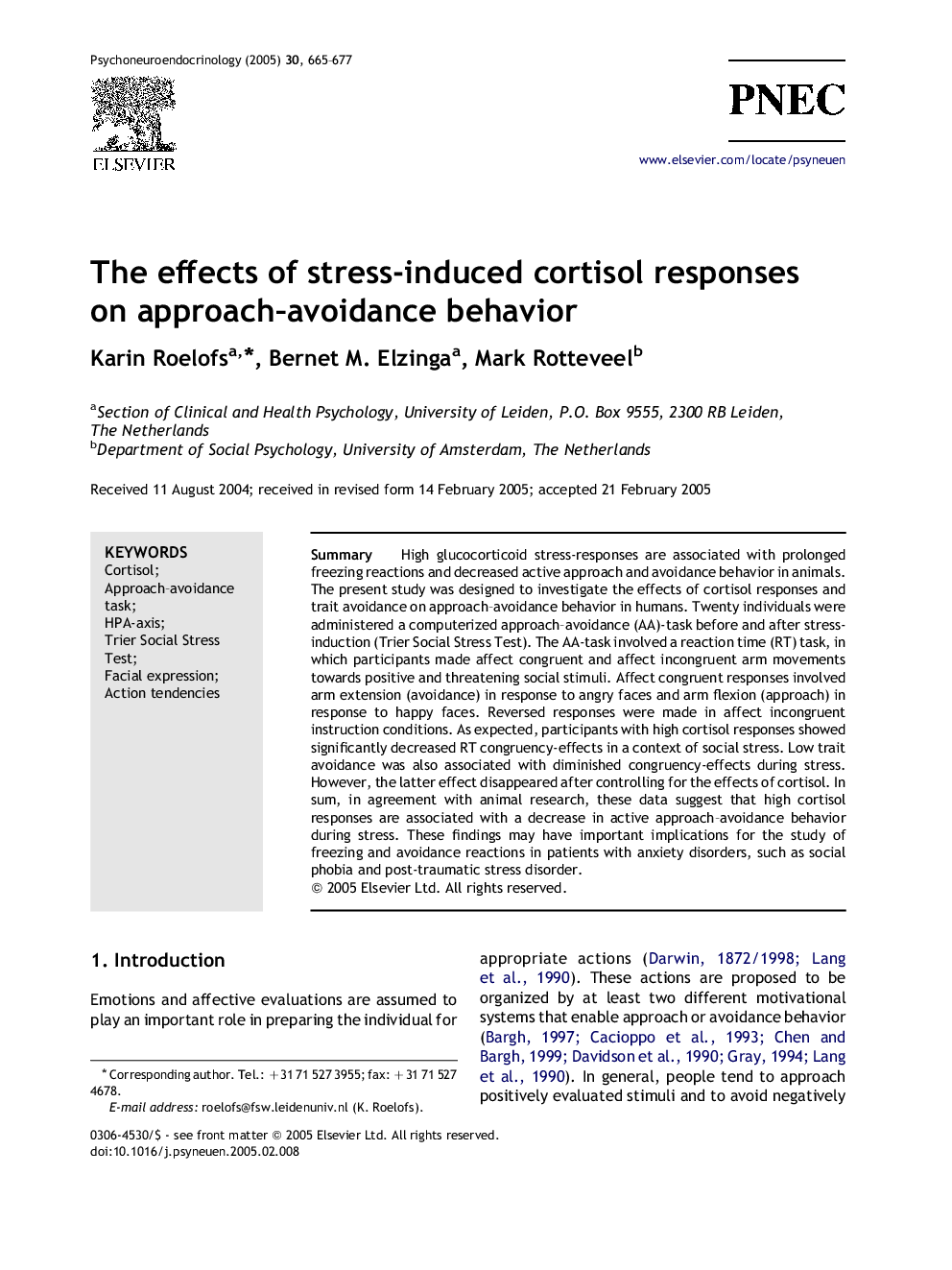| کد مقاله | کد نشریه | سال انتشار | مقاله انگلیسی | نسخه تمام متن |
|---|---|---|---|---|
| 10306152 | 547129 | 2005 | 13 صفحه PDF | دانلود رایگان |
عنوان انگلیسی مقاله ISI
The effects of stress-induced cortisol responses on approach-avoidance behavior
دانلود مقاله + سفارش ترجمه
دانلود مقاله ISI انگلیسی
رایگان برای ایرانیان
کلمات کلیدی
موضوعات مرتبط
علوم زیستی و بیوفناوری
بیوشیمی، ژنتیک و زیست شناسی مولکولی
علوم غدد
پیش نمایش صفحه اول مقاله

چکیده انگلیسی
High glucocorticoid stress-responses are associated with prolonged freezing reactions and decreased active approach and avoidance behavior in animals. The present study was designed to investigate the effects of cortisol responses and trait avoidance on approach-avoidance behavior in humans. Twenty individuals were administered a computerized approach-avoidance (AA)-task before and after stress-induction (Trier Social Stress Test). The AA-task involved a reaction time (RT) task, in which participants made affect congruent and affect incongruent arm movements towards positive and threatening social stimuli. Affect congruent responses involved arm extension (avoidance) in response to angry faces and arm flexion (approach) in response to happy faces. Reversed responses were made in affect incongruent instruction conditions. As expected, participants with high cortisol responses showed significantly decreased RT congruency-effects in a context of social stress. Low trait avoidance was also associated with diminished congruency-effects during stress. However, the latter effect disappeared after controlling for the effects of cortisol. In sum, in agreement with animal research, these data suggest that high cortisol responses are associated with a decrease in active approach-avoidance behavior during stress. These findings may have important implications for the study of freezing and avoidance reactions in patients with anxiety disorders, such as social phobia and post-traumatic stress disorder.
ناشر
Database: Elsevier - ScienceDirect (ساینس دایرکت)
Journal: Psychoneuroendocrinology - Volume 30, Issue 7, August 2005, Pages 665-677
Journal: Psychoneuroendocrinology - Volume 30, Issue 7, August 2005, Pages 665-677
نویسندگان
Karin Roelofs, Bernet M. Elzinga, Mark Rotteveel,